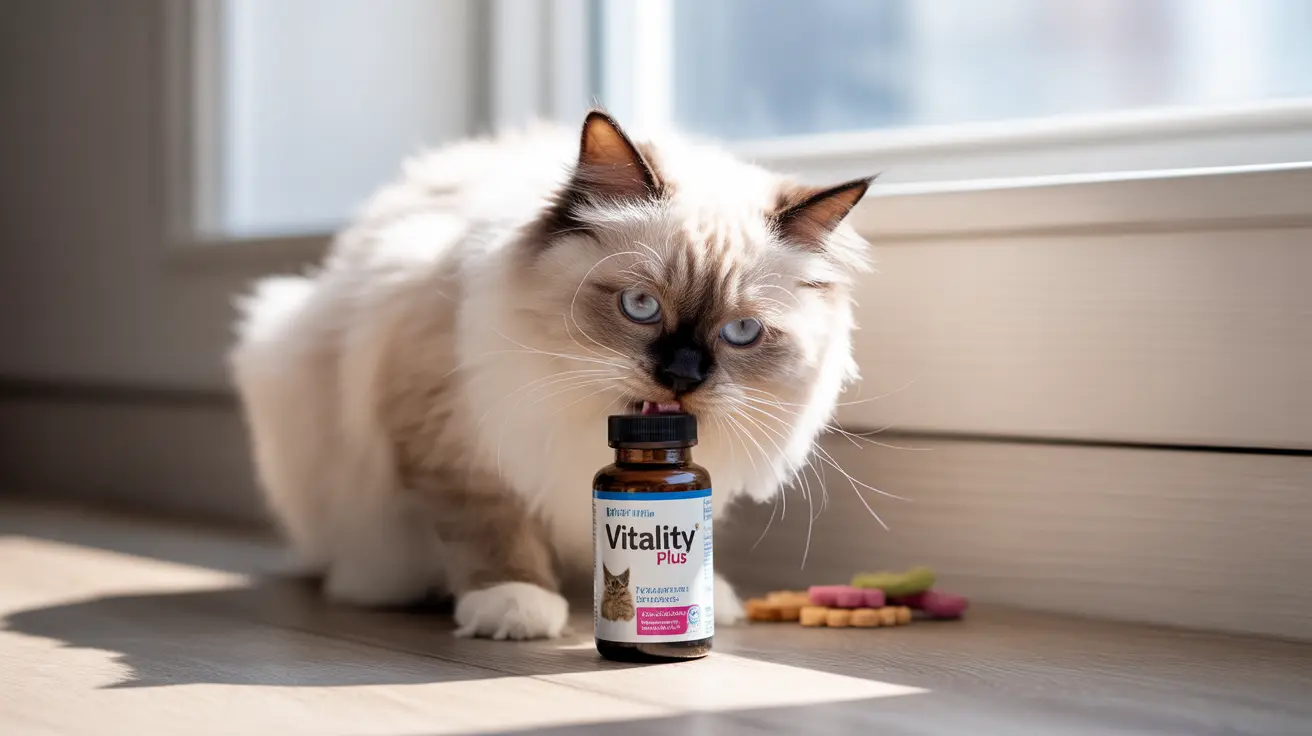As cat owners become increasingly health-conscious, many wonder about the necessity of multivitamins for their feline companions. While commercial cat foods are formulated to meet basic nutritional requirements, certain situations may call for supplementation. This comprehensive guide will help you understand when multivitamins might benefit your cat and when they could potentially cause harm.
Understanding Your Cat's Nutritional Needs
Most healthy cats receiving a complete and balanced commercial diet don't require additional vitamin supplementation. These foods are specifically formulated to meet the standards set by the Association of American Feed Control Officials (AAFCO), ensuring your cat receives essential nutrients in the right proportions.
However, certain circumstances might create a need for supplementation, including:
- Cats eating homemade diets
- Senior cats with specific health conditions
- Cats with absorption issues
- Pregnant or nursing cats
- Cats recovering from illness
When Multivitamins May Be Beneficial
While a balanced diet typically provides sufficient nutrition, some cats might benefit from targeted supplementation. Senior cats may need additional support for joint health and immune function. Cats with certain medical conditions, such as inflammatory bowel disease or chronic kidney disease, might require specific vitamins like B12 or additional minerals.
The Risks of Vitamin Supplementation
Supplementing vitamins unnecessarily can lead to serious health issues. Fat-soluble vitamins (A, D, E, and K) can accumulate in your cat's body, potentially reaching toxic levels. Signs of vitamin toxicity include:
- Skeletal abnormalities
- Digestive issues
- Lethargy
- Neurological problems
- Organ damage
Choosing the Right Supplements
If your veterinarian recommends supplementation, selecting the right product is crucial. Look for supplements specifically formulated for cats and avoid human vitamins, which can contain dangerous ingredients. Choose products with the National Animal Supplement Council (NASC) Quality Seal for assured quality and safety.
The Role of Diet in Vitamin Intake
The best way to ensure your cat receives proper nutrition is through a complete and balanced diet. High-quality commercial cat foods provide essential vitamins and minerals in the correct proportions. If you're feeding a homemade diet, work with a veterinary nutritionist to ensure it meets all your cat's nutritional needs.
Special Considerations for Different Life Stages
Nutritional needs vary throughout a cat's life. Kittens need specific nutrients for growth and development, while senior cats might benefit from supplements supporting joint health or cognitive function. Pregnant and nursing cats have increased nutritional demands that might require supplementation under veterinary guidance.
Frequently Asked Questions
Do cats need multivitamins if they eat commercial cat food?
No, healthy cats eating complete and balanced commercial cat food typically don't need additional multivitamins. These foods are formulated to meet all essential nutritional requirements.
What are the risks of giving my cat too many vitamins or supplements?
Excessive vitamin supplementation can lead to toxicity, particularly with fat-soluble vitamins. This can cause serious health issues including skeletal problems, organ damage, and neurological symptoms.
Are human multivitamins safe for cats to take?
No, human multivitamins are not safe for cats. They contain different dosages and may include ingredients that are toxic to cats, such as xylitol or artificial sweeteners.
When should I consider giving my cat a multivitamin or supplement?
Consider supplements only under veterinary guidance if your cat has specific health conditions, is eating a homemade diet, or has diagnosed nutritional deficiencies.
How can I choose the best multivitamin for my cat's health needs?
Work with your veterinarian to select appropriate supplements based on your cat's specific needs. Look for products with the NASC Quality Seal and avoid human vitamins or generic supplements not specifically formulated for cats.
Conclusion
While multivitamins can be beneficial in specific situations, they're not necessary for most healthy cats eating quality commercial food. Always consult with your veterinarian before starting any supplementation regimen, as they can assess your cat's individual needs and recommend appropriate products if necessary.
Remember that the best approach to feline nutrition is providing a balanced, complete diet appropriate for your cat's life stage and health status. Supplements should complement, not replace, proper nutrition.






